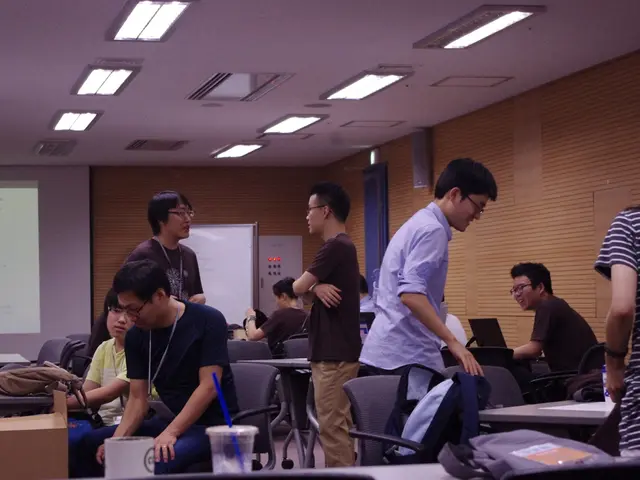UK University Funding: The Clash Between Industrial Policy and Journalistic Integrity
The UK government's decision to divert funding away from media and communications courses, including journalism, towards subjects more directly tied to its industrial strategy has sparked a strong response from the media sector.
In a statement, Joanne Forbes, chief executive of the National Council for the Training of Journalists (NCTJ), expressed concern, stating that the move sends "a damaging message about the value of journalism education" at a time when quality, trusted journalism is more important than ever.
The Strategic Priorities Grant (SPG) for 2025-26 will see a reduction of £108m, lowering the total funding to £1.35bn. This reduction in funding is set to impact various courses, particularly those in journalism, media studies, publishing, and information services.
Universities have raised concerns that these cuts could exacerbate existing pressures. Pervez Khan, senior lecturer in investigative journalism at De Montfort University, suggests the current situation is unsustainable due to falling student interest, industry transformation, and reduced government funding.
The decision has been met with a united front from four journalism education bodies and the NCTJ, who have launched the "Save Quality Journalism" campaign.
The government acknowledges the "invaluable role" journalism plays in society, but argues its funding priorities must reflect the Industrial Strategy. Ministers argue that journalism courses will still benefit indirectly from a 3.1% rise in tuition fees for the new academic year.
However, universities are struggling to cover the extra expenses of running high-cost courses due to a 20% drop in government grants since 2019. As a result, nearly 80% of institutions are considering further reductions in academic R&D spending over the next three years, according to Universities UK.
The strain is also being felt in research and development, with universities facing potential further reductions in R&D spending over the next three years. Some universities are no longer able to supply the delivery of some courses due to reduced funding and financial difficulties.
Pervez Khan fears the system will become exclusive to middle and upper-class people, silencing voices from underrepresented backgrounds. This concern is shared by many in the industry, who argue that quality, trusted journalism needs to be accessible to all.
The government's plans to divert funding away from media and communications courses towards high-cost STEM and healthcare programs, as well as courses linked to strategic growth sectors, aim to meet its ambitions for growth and productivity. Graduates of high-cost subjects are 1.5 times more likely to work in government-designated growth sectors three years after leaving university.
Despite the controversy, the UK government's commitment to quality, trusted journalism remains unwavering. However, the industry and educational sectors are calling for a reconsideration of the funding priorities to ensure the future of journalism education and the continued provision of quality, trusted journalism.
The Office for Students (OfS) distributes the SPG, providing additional support for courses with higher-than-average costs. The search results do not provide specific information on the cost of cuts to journalism education in UK universities.
Read also:
- Strategies for expanding your creative enterprise, directly from industry experts
- CBD and Marijuana as Potential Treatments for Migraines and Headaches?
- Strategies for Mitigating Negative Feelings in Customer Interaction with Your Goods or Services
- Tech Magnate Elon Musk Accuses Apple of Favoritism, as OpenAI Garners More Popular Support





